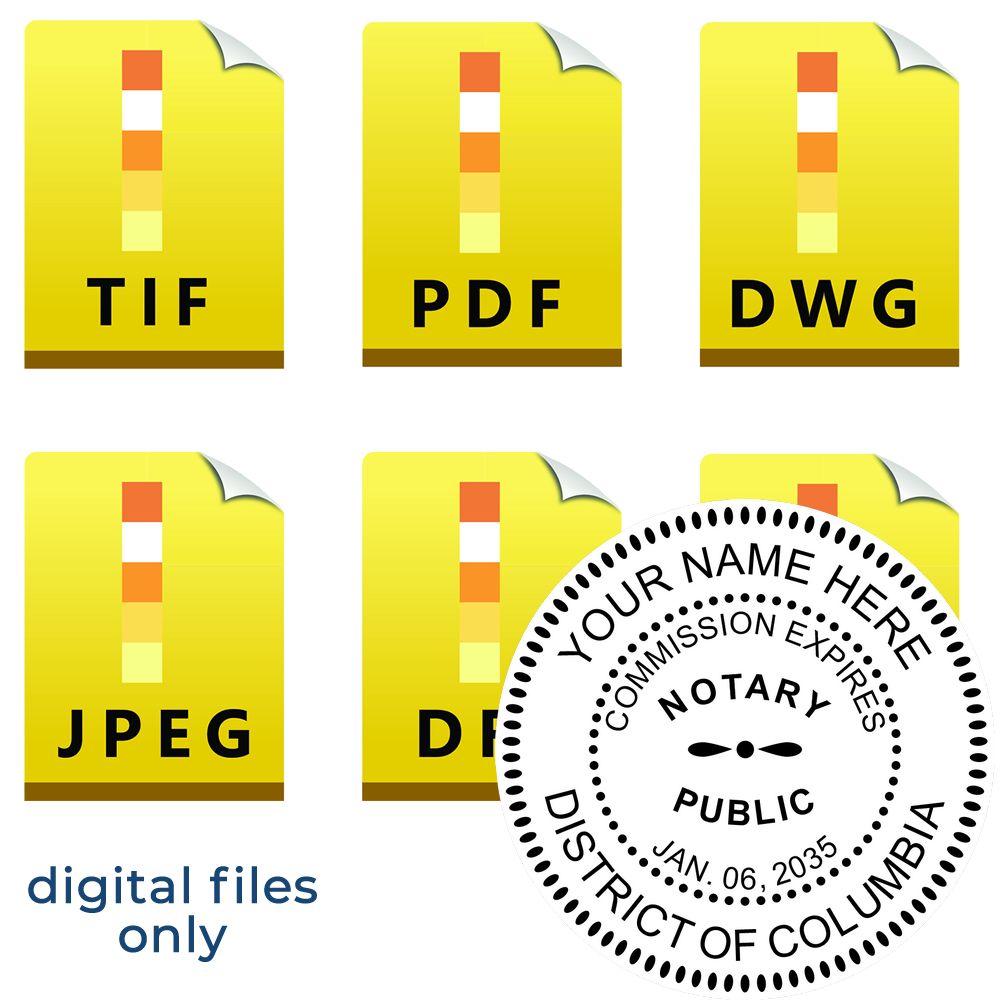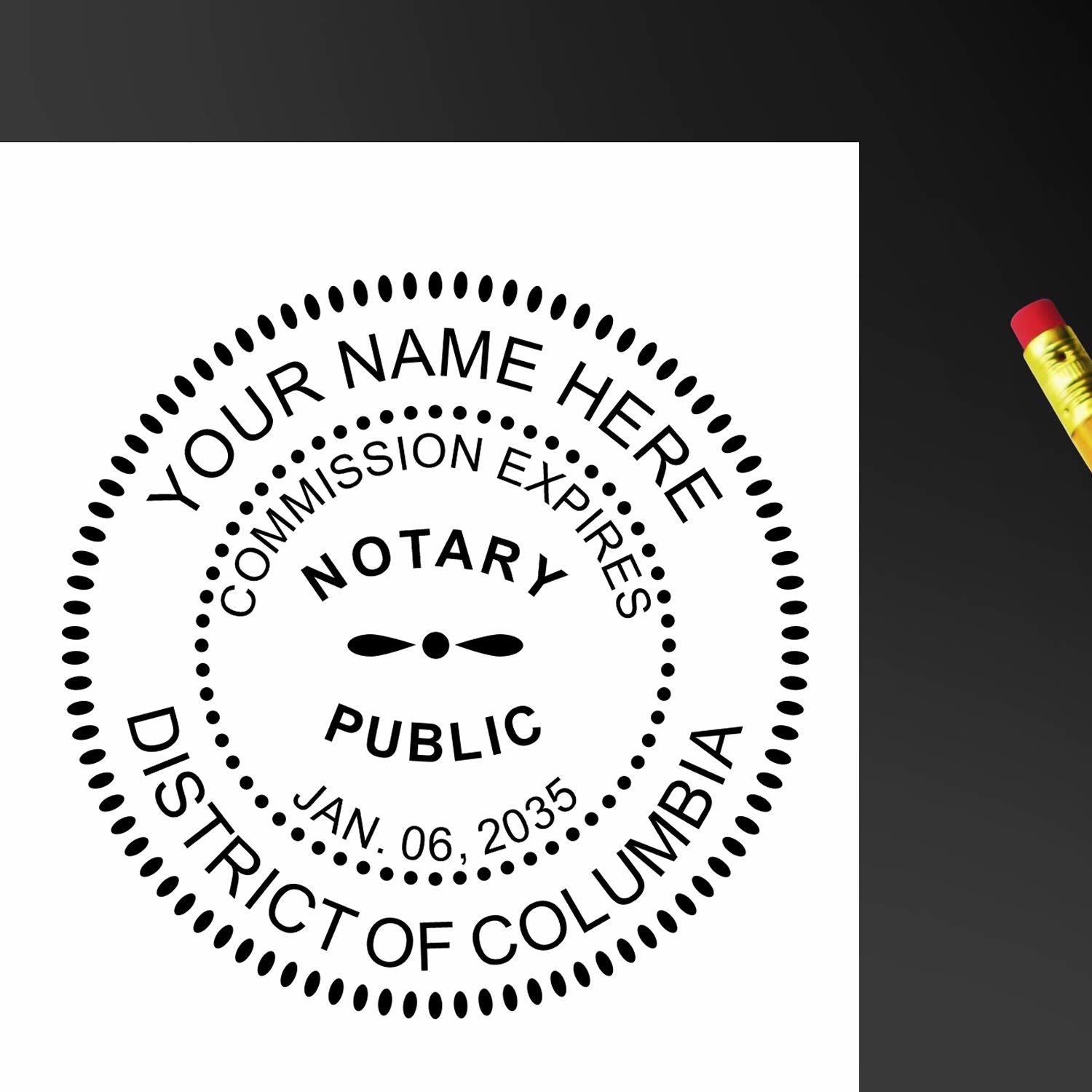Choosing a District of Columbia notary stamp online can feel a bit overwhelming at first. You have specific regulations to follow, multiple stamp styles to pick from, and suppliers to compare. In this guide, you’ll find practical tips to simplify your search, whether you’ve just earned your commission or you’ve been a notary for years. By the end, you’ll know how to spot a high-quality stamp, select a trustworthy supplier, and finalize your purchase with confidence.
Above all, find a stamp that meets both your official obligations and your personal preference for easy, reliable stamping. Ready to dive in? Let’s explore the essentials step by step.
Understand Notary Requirements
Every District of Columbia Notary Public must adhere to certain legal guidelines, including how their seal must appear and what essential details it has to include. To ensure your stamp meets these standards, it helps to do a little homework before you commit.
Review Official Regulations
It’s always a good idea to check the latest notary guidelines from the District of Columbia. These requirements usually describe:
- What text must appear on your stamp
- Acceptable designs or shapes
- Whether hand-stamped or embossed seals are permitted
Even if a supplier claims to be up to date, cross-referencing with the official rules keeps you one step ahead. If you’re unsure, reach out to the local notary licensing authority for clarification or confirm details with more experienced peers.
Confirm Legibility and Durability
Legibility isn’t just preferable, it’s essential. You want a notary seal that prints a clean impression every time, so your documents meet legal standards. Look for:
- Crisp edges and easy-to-read text
- Ink that won’t fade quickly
- Materials that can handle long-term use
Some manufacturers use high-quality components, while others may cut corners. Do a quick background check on their printing process or read customer reviews to see if the product design holds up over time.
Pick The Right Stamp Style
If you’re shopping for District of Columbia notary supplies, you’ll find an assortment of stamp styles, each with its unique benefits. Which one suits you best often depends on how heavily you plan to use it and where you’ll be doing most of your notarizing.
Pre-Inked vs. Self-Inking vs. Rubber
- Pre-Inked Stamps
- Contain ink within the stamp itself
- Typically offer crisp, detailed imprints
- Good for high-volume use, though re-inking might cost slightly more in the long run
- Self-Inking Stamps
- Feature a built-in ink pad that flips against the die with each impression
- Usually easier to re-ink than pre-inked stamps
- Provide a clean, consistent mark, best for moderate to high-volume notaries
- Traditional Rubber Stamps
- Require a separate ink pad
- Sometimes favored by notaries who like to control ink application
- Can be cost-effective, but you need to keep track of a separate pad


A quick pro tip: If you’re on the go a lot, a self-inking or pre-inked stamp might be more convenient. Meanwhile, if you typically work from a stationary desk, a separate pad might not be a big deal.
Consider Stamp Shape And Size
Once you’ve chosen the stamp type, confirm you’re getting the right shape and size that the District of Columbia allows. The circular seal is a common preference for many notaries, but rectangular ones can also be used if regulations permit. Make sure:
- The dimensions line up with official requirements
- The design fits the text you need (your name, commission expiration date, etc.)
- It feels comfortable in your hand
If your stamp is too large, it might not fit all document layouts. If it’s too small, it could be tricky for others to read at a glance. Getting the shape and size right the first time will save you from having to reorder.
Evaluate Supplier Credentials
Picking the right stamp design matters, but the company creating that stamp is just as important. After all, you don’t want to partner with a supplier that’s slow, unreliable, or unfamiliar with District of Columbia’s notary guidelines.
Check For Experience
A supplier’s industry tenure tells you a lot about their reliability. Has the company been making notary stamps for several years? Experience usually translates into smoother production processes, fewer errors, and faster turnarounds.
Engineer Seal Stamps, for instance, has over 60 years of experience providing District of Columbia Notary Stamps, Seals, and other official supplies. With that much time in the business, you can be more confident that they’ve seen (and fixed) just about every notary stamp hiccup imaginable.
Look For Extra Perks
In addition to trusting a supplier with your stamp’s legality, see if they offer special benefits or deals. Here are a few advantages to look for:








- Free digital stamp with your purchase. Some suppliers, including Engineer Seal Stamps, provide a digital seal file so you can easily add it to electronic documents.
- Quick service and shipping options. If you need your stamp in a hurry, confirm their turnaround time.
- Refill or replacement programs. Eventually, every stamp runs out of ink. A solid supplier will make re-inking or even upgrading your stamp as painless as possible.
As you decide on your notary kit, consider bundling items such as embosser seals, extra ink pads, or additional accessories. You can often get a better deal by grabbing multiple items at once, which might include district of columbia notary supplies that keep your notary tasks streamlined.
Create A Smooth Online Experience
Browsing online can give you a wide variety of choices, but it’s helpful to know how the process typically unfolds. You’ll want to review the ordering process, time estimates, and shipping details before you enter any payment information.
Understand Production Timeline
Reputable online suppliers will be transparent about how long it takes to manufacture and ship your stamp. Pay attention to:
- Order processing time. How many days before your order is officially underway?
- Personalization details. Custom text or design might extend production time, so keep that in mind if you’re in a rush.
- Final quality checks. A good supplier will confirm your name and commission date are accurate before finalizing.
Some suppliers, like Engineer Seal Stamps, aim to complete this process quickly without skimping on quality. That balance of speed and thoroughness helps you avoid receiving an incorrect stamp.
Review Shipping Options
Many websites will let you pick from standard, rush, or even overnight shipping. Decide which one works best based on your schedule. If you have a last-minute need for your District of Columbia Notary Public Stamps—perhaps your new commission starts soon—you might need expedited shipping.
Also consider any additional shipping fees at checkout. If you’re comparing prices between providers, factor in both the base cost of the stamp and how much you’ll pay to have it delivered to your door.
Frequently Asked Questions
Below are some of the most common questions you might have before purchasing a District of Columbia notary stamp.
1. Do I need to keep a physical seal if I have an online or digital stamp?
Yes. Even though some suppliers offer a free digital stamp, you generally still need a physical notary seal for in-person notarizations. District of Columbia law typically requires an actual impression on paper documents, so the physical seal remains indispensable.
2. Can I reuse my notary stamp after my commission is renewed?
That depends on whether your stamp has the correct commission expiration date and other updated details. If your stamp includes an expiration date, you’ll need a new one once that date changes. It’s best to confirm any changes in your name or your commission details with the District of Columbia before reordering.
3. What if my stamp’s print starts to fade?
Keep a close watch on the clarity of your stamp impressions. If you notice fading, re-ink it (if possible) or consider buying a replacement if it’s too worn out. Reliable suppliers should provide guidance on how to re-ink your stamp correctly or point you to replacement materials that match your device.
4. Are there special rules for embossers in District of Columbia?
In many cases, embossers are acceptable as long as they meet the same essential guidelines as inked stamps (such as containing the correct text and notary details). Some notaries like embossers for a professional look or to minimize the risk of forgery. Check your notary handbook or official District of Columbia notary regulations to see if an embosser can be used on its own or if an inked stamp is also required.
After walking through these top tips, you’re on your way to choosing a notary stamp that meets the District of Columbia’s requirements and suits your everyday workflow. A good fit usually means your job goes faster, documents look impeccable, and you can focus on helping clients rather than fiddling with mismatched supplies.
Whether you’re grabbing your very first District of Columbia notary stamp online or upgrading to a fresh design, remember to do your research, pick a reputable supplier, and keep your stamp’s legibility in top shape. When all the right pieces come together—ease, accuracy, and durability—you’ll find your notarizing tasks more enjoyable than ever.
If you’re ready to get your next stamp, consider a brand you trust that’s been in the game for decades. Engineer Seal Stamps offers quick processing, a free digital stamp option, and over 60 years of experience serving notary professionals like you. That way, you can focus on what matters most: providing top-notch notarial services for the District of Columbia.




































